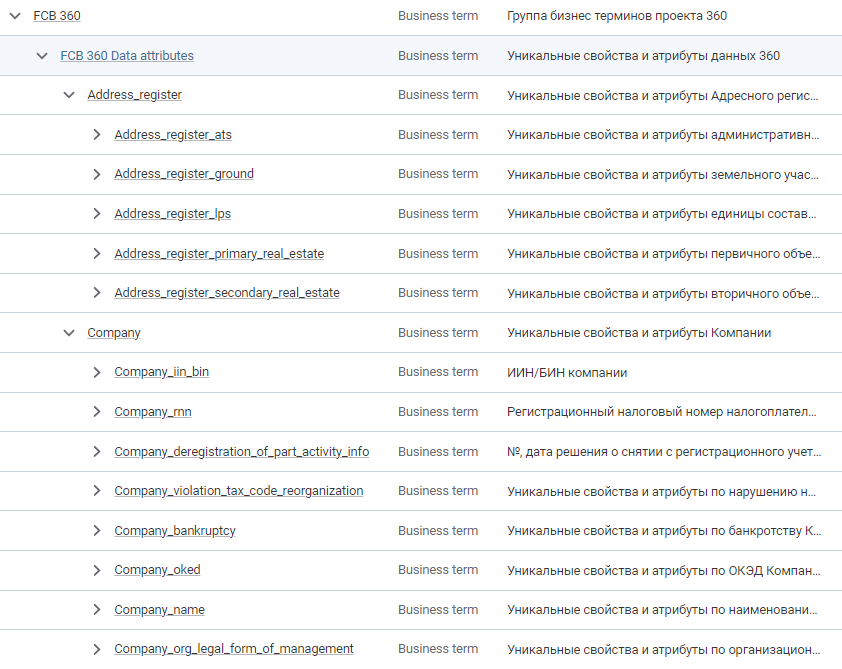Hello everyone!
I need to find all tables of attributes with no associated terms from the business term group: "FCB 360 Data attributes." The term "FCB 360 Data attributes" has multiple child terms.Is there a way to find tables that have no attribute of an unrelated term from the group of business terms: FCB 360 Data attributes. if it is possible to find at least with Desktop

I will be very grateful for your help🤗
Thank you!






